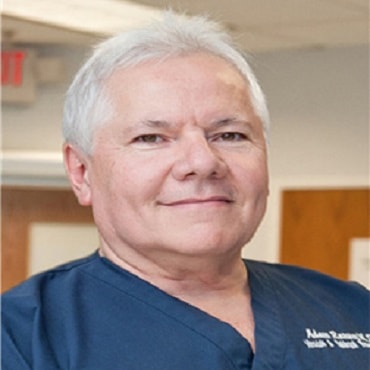Scientific Program

A Ramsey
Unit of the Chicago Incontinence Center, USA
Title: Painful bladder syndrome/chronic pelvic pain
Biography:
Adam Ramsey is Board Certified with the American Board of OBGYN. He is a Fellow of the American College of OBGYN, a Member of the Royal New Zealand College of OBGYN / Australian College of OBGYN, a Diplomate of OBGYN from Otago University, Dunedin, New Zealand and a Diplomate of Obstetrics with the Royal College of Physicians of Ireland. His deep passion for the field of Urogynecology first began with his Research Fellowship in Urodynamics Studies with patients suffering from Overactive Bladder Syndrome at Massachusetts General Hospital, Harvard Medical School, Boston, Massachusetts, USA in 1983. He is affiliated with the American Urogynecological Society (AUGS), The International Continence Society (ICS), and many other educational bodies. His teaching experience has expanded from his work as a Clinical Tutor from Canberra, Australia to teach medical students at Sydney University, Australia, teaching the curriculum course of OBGYN and Urogynecology to Medical students at Midwestern University School of Medicine, Downers Grove, Illinois, USA; and as an assistant Professor in the Department of OBGYN at the North Chicago School of Medicine, Rosalind Franklin University, Chicago, Illinois, USA. Currently, He speaks professionally, representing diverse medical industries and presenting in many conferences and clinical meetings around the world.
Abstract
Objectives: Key treatments of IC, Antidepressants, Gabapentin, Intravesical therapy, Pentosan polysulfate, Neuromodulation, Sexual dysfunction in the IC patient-pathogenesis and treatment strategies.Introduction: Challenge to diagnose “Traditional” view recognizes patients with end-stage disease, A continuum, rather than a “fixed” disease, Confused with other GU or GYN disorders.Clinical Picture of Interstitial Cystitis: Urgency, frequency, nocturia, chronic pelvic pain (CPP), Pain associated with sexual intimacy +/- incontinence, Negative culture and sensitivity. Estimated prevalence of self-reported IC in women is 1.5 million. IC is often misdiagnosed or underdiagnosed, 38% of women scheduled for laparoscopy for suspected endometriosis were cystoscopically confirmed to have IC. IC may be a common cause of Chronic Pelvic Pain (CPP), 80% to 85% of women with CPP of unidentified etiology shown to have pain of bladder origin.Principles of Treatment: Multimodal, Dietary guidelines, Stabilize the urothelium, pentosan polysulfate, Modulate neural activity, Tricyclic antidepressants like amitriptyline, gabapentin, Botox Therapy, Stabilize mast cells, Antihistamines, ex. Hydroxyzine, Stabilize the pelvic floor and sacral neuromodulation.
- Acute Hepatitis
- Alcoholic Hepatitis
- Autoimmune Hepatitis
- Chronic Hepatitis
- Giant Cell Hepatitis
- Hepatitis B
- Hepatitis C
- Hepatitis Epidemiology
- Viral Hepatitis
- Parasitic Hepatitis
- Ischemic Hepatitis
- Drug Induced Hepatitis
- Hepatitis Vaccine
- Advance in Hepatitis Testing
- Hepatitis Immunology & Vaccine biology

